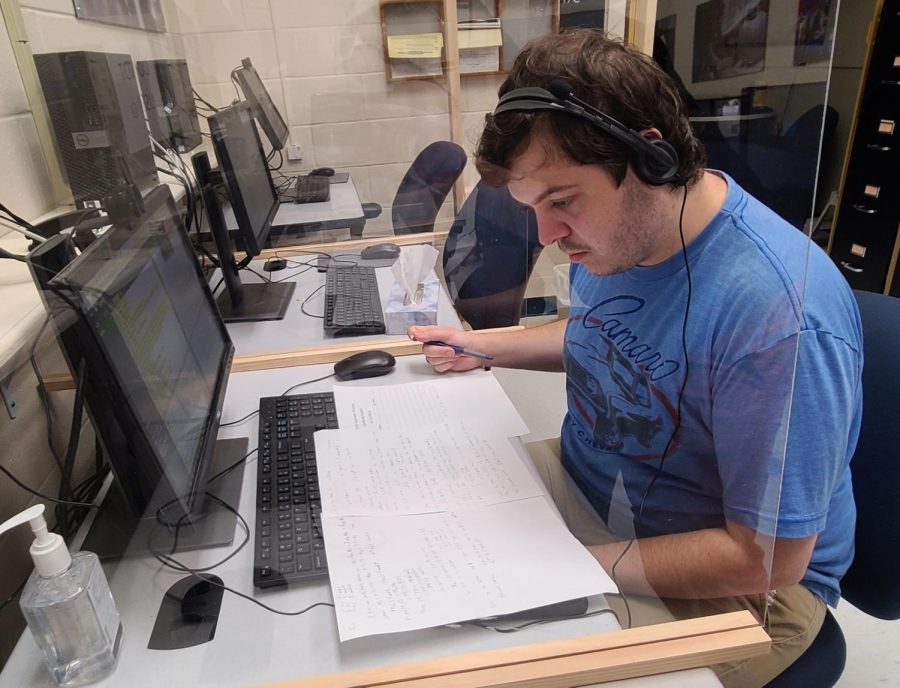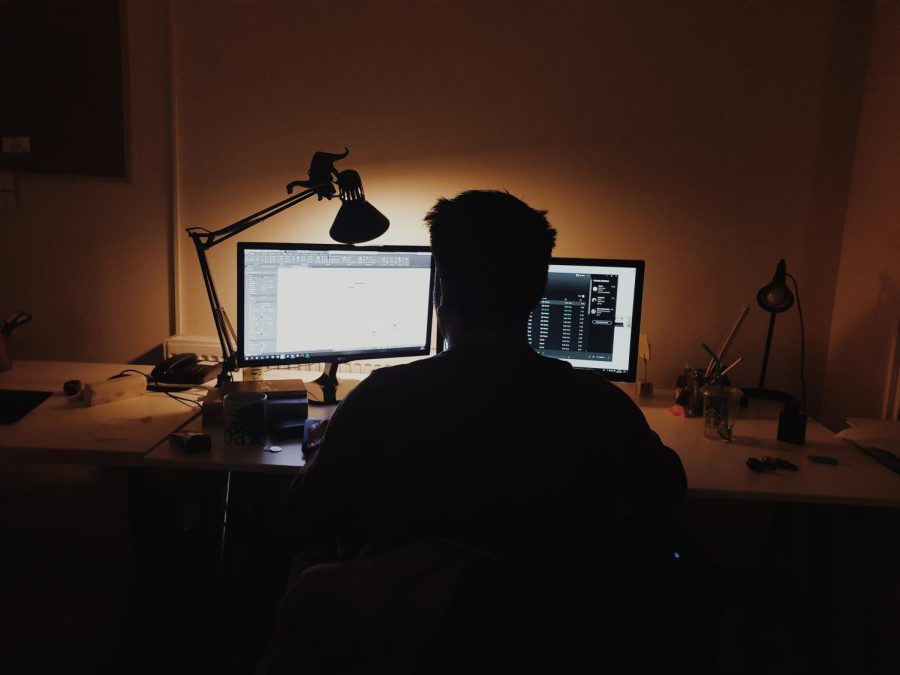Suffolk Students Combat the Negative Effects of Screen Time
March 1, 2023
After facing a worldwide pandemic that has thrust the public into constant online media consumption, remote work, online classes, and virtual meetings have now become commonplace and an integrated part of everyday life that in the past only seemed like a temporary solution. Are Suffolk students satisfied with the amount of screen time they spend daily?
“I think my phone is a distraction,” said Natalia Cuccurese, 18, a liberal arts major from Bellport.
Cuccurese shared that her daily average phone screen time was 2 hours and 35 minutes, while that does not account for her daily total, it shows her commitment to lessening her usage.
The average American’s daily total screen time is about 7 hours and 4 minutes, according to research done by Comparitech. This includes phone use, work done on computers and time spent watching entertainment on TV.
“I am seeing that students have an apprehension to connect to their peers and others due to isolation because of screen time,” said Dante Morelli, a Suffolk communications professor.
Especially now as the COVID-19 pandemic has waned, isolation and loneliness have become increasingly prevalent among young adults. Excessive screen use after the pandemic correlated with mental health issues according to a study done by Frontiers in Human Dynamics.
They found that mental health issues such as attention-deficit symptoms, anxiety and depression correlated with children and young adults with increased screen time. Also, physical health issues arise as a result of excessive screen time, such as eye strain, difficulty sleeping and an increased risk of developing nearsightedness.
A 2017 study by the National Library of Medicine looked at the association between screen time and depression and found that those who spent more than six hours daily of digital media use were at a higher risk of developing depressive symptoms.
Students also recognized the risk of too much screen use.
“They start becoming isolated and a bit too into [creating] a false reality, not the one they are in,” Dawn Slawinski, 18, communications major, said.
“I think people compare themselves too much to others on social media,” Cuccurese said.
In 2020, a survey conducted by FHEHealth to understand how those in the United States felt about their body image and how social media can impact that found that 88% of women and 65% of men compare their bodies to images they see in the media. For 23% of women, social media is the top factor that plays into how they feel about their bodies. Following that, 17% of women felt their significant other impacted their body image. While for 22% of men, the top factor that played into their body image was their significant other, social media was not far behind with 18%.
Acknowledging the risks and dangers, here are some suggestions on how to combat spending too much time using digital media.
“Spend appropriate and moderate times socializing and doing work on screen,” said Morelli. “Strive to connect with people outside of devices, the less screen time the better.”
Setting app time limits, doing physical activity, or just spending time with friends and family are all ways to effectively lessen screen time.
“I am trying to stay off [of] it less and set time limits,” Cuccurese said.
Screen use will forever be a part of everyday life, but take the extra step and consciously try to monitor the use of your electronics. Replace the time spent endlessly scrolling and partake in something self-fulling to you.
“I feel like it stops me from working on myself.”


















































Jamie Nobile • Mar 1, 2023 at 2:31 pm
Very insightful